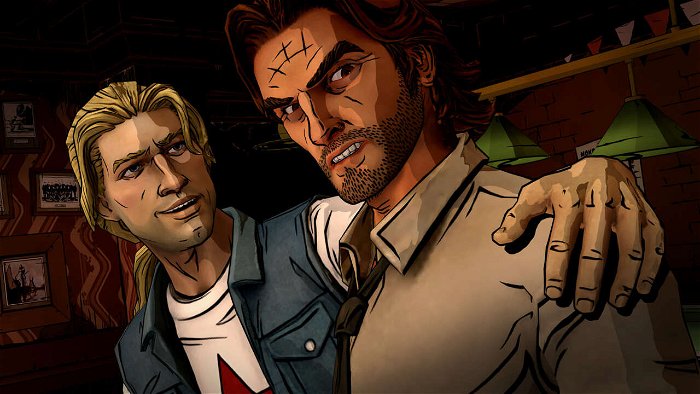This month has been a good one for episodic games. In the past week, new entries to both Cardboard Computer’s Kentucky Route Zero and Telltale Games’ The Walking Dead: Season 2 have been released, offering those of us following those series a bit of long-awaited story progression. These are two of my favourite games at the moment, so I was happy to get a chance to play more of them. But, while trying to remember plot and character details from previous episodes, I also started to think that the way these games are being released isn’t quite as good as their actual content.
Episodic titles are a great idea. Splitting a game into several parts with staggered releases allows developers to control the pacing of their stories to a degree that would be impossible otherwise. Waiting for new parts of the game to come out also focuses player concentration, fostering conversation around new plot points and prompting deeper looks into the material that everyone has just experienced at roughly the same time. But in most cases, the execution of most episodic releases hasn’t been handled all that well. Telltale Games is probably the highest-profile developer employing the episodic format. While their release schedule stayed mostly on track throughout the first season of The Walking Dead game, the second season of that series and the ongoing The Wolf Among Us have struggled to meet consistent deadlines. Worse is Kentucky Route Zero, an exceptional game by Cardboard Computer that is still frustrating in its incredibly slow releases. Every act of Kentucky Route Zero has been remarkably well-written and presented, but the effectiveness of its mysterious plot is hampered by the enormous gaps between new entries. I was blown away by the end of Act II. By the time Act III came out—nearly a year later—I had to spend the first half hour trying to remember each of the characters and what had happened in the story before.

These aren’t new problems. The infamous ending to Half-Life 2: Episode 2—a cliffhanger that still hasn’t been resolved after almost seven years—is more of a joke than a real annoyance at this point, but the inability of even a huge, well-established developer like Valve to stick to its self-imposed release schedule illustrates a point. Television seasons are typically filmed and edited in their entirety before the first episode is even aired. Because of this, they’re able to maintain a weekly air-date that ensures viewers can become engaged with characters and plotlines without having to search their memories every time a new episode comes out. Videogame production is markedly different than television, though. Studios routinely delay their games for reasons that don’t exist in film or TV. Technical problems may cause a title that works on computer to crash constantly on a console; the save states that allow continuity between episodes may be prone to corruption. It’s completely understandable when developers are unable to meet deadlines, but that doesn’t mean that erratic releases aren’t still a problem.
Imagining an HBO where True Detective, Game of Thrones, or Boardwalk Empire episodes are staggered over months is impossible. Audiences would forget why they were anticipating a continuation of these stories in the first place. Why should videogames be any different? Players waiting to learn more about the mysteries at the centre of The Wolf Among Us or Kentucky Route Zero are no different than those who are invested in story-driven TV shows. Unexpected delays also take away from the strengths of episodic games, interfering with the careful pacing established by incremental releases of new content.
It seems like the only way to solve this problem is for developers to finish a game in its entirety (or at least the majority of it) before beginning to release episodes. If unexpected issues—creative or technical—are responsible for uneven waiting times between releases, then it only makes sense to re-evaluate the model as it is currently used. I love the episodic format, but there’s little doubt that it’s extremely difficult for videogame developers to make it work consistently. Taking a few lessons from TV— a medium that has long understood how to make predictable scheduling work—seems like the best path forward for games.




